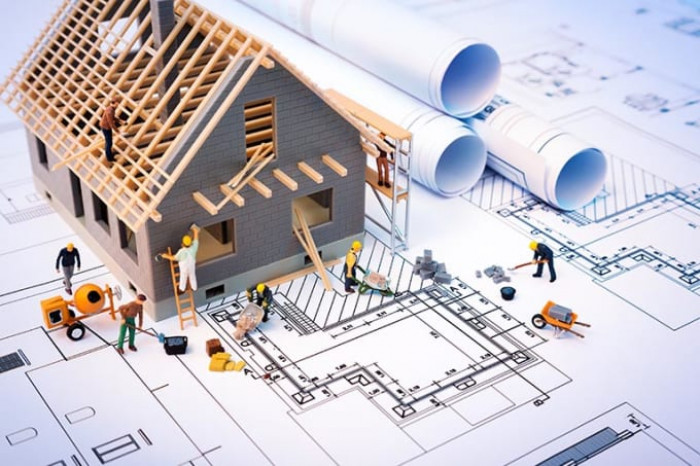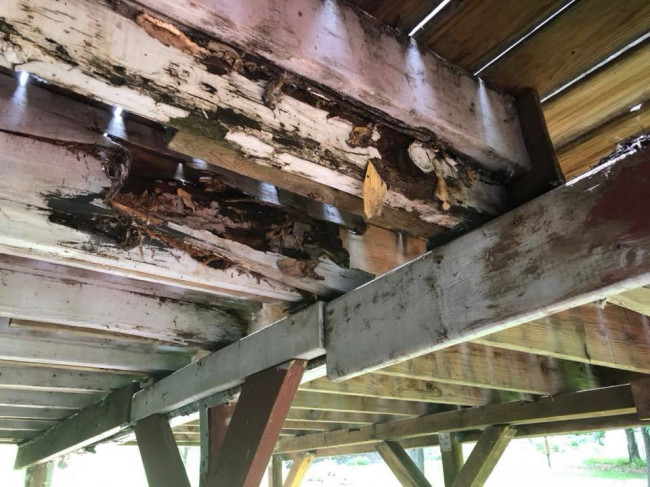When planning a construction project, it's easy to overlook the importance of hiring a structural engineer. However, a structural engineer plays a critical role in ensuring the safety and success of your construction project. Here are some reasons why hiring a structural engineer is critical for your construction project:
1. Ensure Compliance with Building Codes and Standards
Building codes and standards are in place to ensure that buildings are designed and constructed to meet certain safety and performance criteria. Structural engineers are experts in these codes and standards and will ensure that your construction project is in compliance with them. This ensures that your building is safe for occupancy and will perform as intended.

2. Identify and Mitigate Potential Hazards
Structural engineers have the expertise to identify potential hazards that could compromise the safety and integrity of your building. They can conduct a thorough analysis of the site and the building design to identify potential hazards such as soil instability, high wind loads, and seismic activity. They can also recommend measures to mitigate these hazards, such as incorporating seismic-resistant features into the building design.
3. Optimize Building Design
A structural engineer can optimize the design of your building to ensure that it is both safe and efficient. They can work with the architect to develop a design that meets your needs while also minimizing construction costs and material waste.
4. Ensure Structural Integrity
Structural engineers are experts in ensuring the structural integrity of a building. They can ensure that the building's foundation is designed to support the weight of the building and that the building's frame is structurally sound. They can also oversee the construction process to ensure that the building is constructed according to the design specifications.
5. Reduce Liability
By hiring a structural engineer, you reduce your liability in the event of a building failure or accident. A structural engineer will ensure that your building is designed and constructed to meet safety standards, reducing the likelihood of accidents or building failures.
6. Save Money
While it may seem like an additional expense to hire a structural engineer, it can actually save you money in the long run. A structural engineer can optimize the building design to minimize construction costs and reduce the need for costly repairs in the future. They can also help you avoid costly mistakes by identifying potential hazards and ensuring compliance with building codes and standards.
7. Collaboration with Other Professionals
Structural engineers work closely with architects, contractors, and other professionals involved in the construction project. They can collaborate with the architect to ensure that the building design is structurally sound and meets the client's needs. They can also work with the contractor to ensure that the building is constructed according to the design specifications and that any issues that arise during construction are resolved quickly and effectively.
8. Flexibility in Design
A structural engineer can provide flexibility in the design of a building. They can work with the architect to incorporate innovative design elements into the building while ensuring that the design is structurally sound. They can also suggest alternative building materials or construction methods that may be more cost-effective or environmentally friendly.
9. Maintenance and Repair
Structural engineers can provide guidance on the maintenance and repair of the building. They can identify potential issues that may arise over time and suggest measures to prevent them from occurring. They can also provide guidance on repairs and renovations to ensure that they do not compromise the building's structural integrity.
10. Sustainability and Environmental Considerations
Structural engineers can help to promote sustainability and environmental considerations in building design. They can suggest measures to reduce the building's carbon footprint, such as incorporating green building materials, optimizing energy efficiency, and using renewable energy sources. They can also consider the building's impact on the environment during the design process, such as minimizing the amount of waste generated during construction and ensuring that the building is resilient to natural disasters.
11. Regulatory Compliance
Structural engineers are responsible for ensuring that the building meets all regulatory requirements. They can navigate the complex regulatory environment to ensure that the building design meets local, state, and federal regulations. This includes ensuring that the building is compliant with zoning laws, building codes, and other regulatory requirements.
12. Building Information Modeling (BIM)
Structural engineers use building information modeling (BIM) software to create 3D models of the building design. This software allows them to simulate how the building will perform under various conditions, such as wind loads, seismic activity, and thermal stress. They can use this software to optimize the building design and identify any potential issues before construction begins.
13. Risk Mitigation
Structural engineers play a critical role in risk mitigation, which involves identifying and assessing potential risks and hazards associated with the building design and construction. They can conduct risk assessments and hazard analyses to identify any potential problems, such as foundation failures, structural collapses, fire hazards, and other safety issues. By identifying these risks early on, they can develop risk management strategies and mitigation measures to reduce the likelihood of accidents and injuries.
14. Cost Savings
Structural engineers can also help to save costs during the construction process. By providing guidance on building materials and construction methods, they can help to reduce costs and minimize waste. They can also optimize the building design to reduce the amount of materials needed and ensure that the building is energy efficient, which can help to reduce operating costs over time.
In conclusion, hiring a structural engineer is critical for the success and safety of your construction project. They bring expertise in ensuring compliance with building codes and standards, identifying and mitigating potential hazards, optimizing building design, ensuring structural integrity, reducing liability, saving money, and collaborating with other professionals. They also provide guidance on maintenance and repair, promote sustainability and environmental considerations, ensure regulatory compliance, and use building information modeling (BIM) software to optimize the building design. By investing in a structural engineer, you can ensure that your building is safe, efficient, and built to last.
















